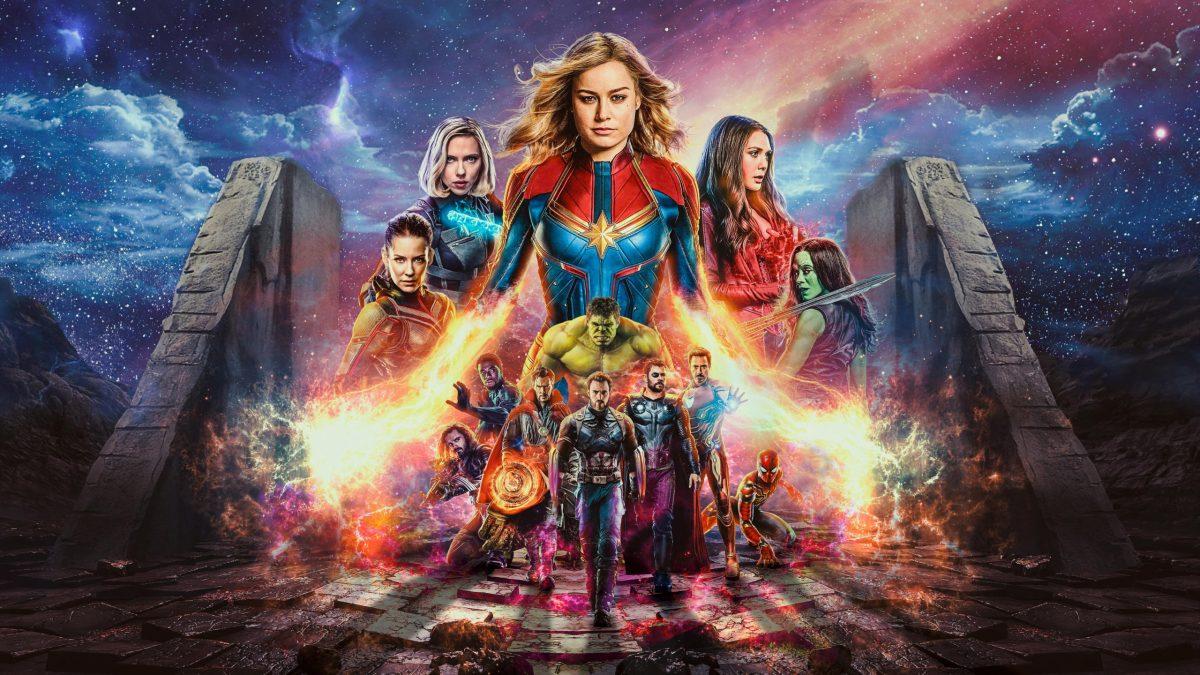On one hand, I’m as excited as anyone for the cinematic release of Marvel’s “Avengers: Endgame.” On the other, my excitement stems from a place of deep resentment; once the series is finished, I’ll finally be released from the corporate obligation which has become superheroes in general.
If “Avengers: Endgame” is anything like its predecessors in the franchise, then leeching any enjoyment out of it at all hinges upon the viewer having seen every other Marvel Cinematic Universe (MCU) film ever produced, like, ever. I am not a particularly savvy movie-goer, but understand that I had seen sixteen of the twenty films released in the MCU. Sixteen movies is a lot of movies. Even at the cheapest theater, that’s $80.00 sunk into the clutches of what is already one of Disney’s most lucrative properties. A viewer who has invested a minimum of $80.00 in backstory should, reasonably, be able to engage with the full extent of that movie. But that just wasn’t my experience.
Instead, “Infinity War” tortured me with an overlong movie that tried to cram every possible intellectual property into its runtime. The result was a clip show of conversation between obscure characters where the whole purpose seemed to be that the movie was referencing that character. The plot built out of this was flimsy at best, and distracted from what could have been an otherwise passable story about Thanos so that “fans” could be “rewarded” with gratuitous references to other titles owned by the MCU.
That’s not nuanced storytelling. That’s masturbation.
In these troubled times, I like to think of this clip below (which has strong language, be advised). Substitute “Big Bang Theory” with “Avengers” and the word “comedy” for “a good movie.” Because really, “Avengers” is just naming a bunch of characters and passing that off as a narrative.
This perfectly encapsulates why I hate “The Big Bang Theory” pic.twitter.com/G2P4TLyUKy
— Lyle Rath (@LyleRath) January 27, 2016
Those “head-nods”, which are supposed to be fun, become homework. Even watching stand alone MCU films turns into a task, because if you don’t watch them, you’ll surely suffer later when the inevitable crossover mocks your apparent lack of dedication. The release of “Avengers: Endgame” is now a deadline, where the work needed to be completed before that point involves watching about 50 hours of mostly-white men punching each other repeatedly. Marvel movies have become a practice in cultural risk-aversion, and it’s getting stale. It’s certainly rendering the process no longer fun.
Compare this to a superhero movie which executed a crossover well: Sony’s “Spider-Man: Into the Spider-Verse.” In “Spider-Verse,” several different incarnations of the Spider-Man franchise collide. Miles Morales, Spider-Gwen, two different Peter Parkers, Peni Parker (a female anime-style rendition), Spider-Man Noir (which is exactly what it sounds like) and Spider-Ham (an anthropomorphic pig voiced by John Mulaney) are all forced to interact—with hilarious results.
“Spider-Verse” leans into the unique stylization of each title that it references, and does so without requiring audience background knowledge. Where “Spider-Verse” is meta, it is meta towards shared cultural experiences; for example, it pokes fun at western cartoon tropes through referencing Spider-Ham floating towards a pie.
In an effort to embody prestige, MCU crossover films become over-serious, abandoning the quirky charm that makes the character-based movies watchable. Compared to “Spider-Man: Homecoming” or “Thor: Ragnarok,” “Avengers”-franchise films have fewer jokes, safer art direction and almost no traces of genre film tropes. This insufferable self-importance is both draining and demanding. When compared to “Spider-Verse” especially, it becomes apparent that “Avengers” as a whole prioritizes self-gratification over universal accessibility.
For me, an ideal “Avengers” franchise would be able to function as a standalone series, where the character-based films would still be available for anyone looking to learn more about certain characters or specific plot points. However, there wouldn’t be required viewing outside of the franchise itself. It would help to “trim the fat” in terms of storytelling, and also to perhaps add some joy back into the series.
Perhaps in championing crossovers, the more gatekeeping factions of the MCU fandom had fully intended to drain all enjoyment out of superheroes. Perhaps it wasn’t intentional at all, and is just an unfortunate by-product of the festering cesspool that has become “nerd culture.” Either way, it dissuades participation from anyone not already deeply entrenched within it.
So, let “Avengers: Endgame” drop, like the blade of the guillotine, putting an end to my misery. And please—never try to talk to me about Captain America again.
For questions/comments about this story, email [email protected] or tweet @TheWhitOnline.























































































































































!["Working with [Dr. Lynch] is always a learning experience for me. She is a treasure,” said Thomas. - Staff Writer / Kacie Scibilia](https://thewhitonline.com/wp-content/uploads/2025/04/choir-1-1200x694.jpg)








































